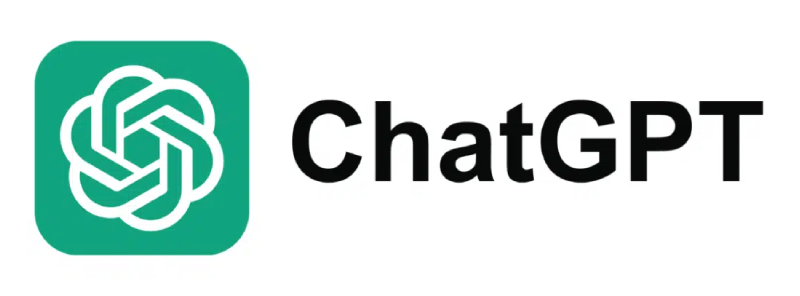Key takeaways
- Witness signatures help confirm that the parties signed a document willingly and were mentally capable at the time. They are often legally required for documents like wills, deeds, and power of attorney
- Choose a witness who is of legal age, mentally competent, has no conflict of interest, and can be reached later, if needed. Some jurisdictions restrict family members, so opting for a truly neutral third party is the safest choice
- Common mistakes include using biased or ineligible witnesses, collecting signatures at the wrong time, or including witness language without actual witnesses
If you take “witness signature” at face value, just getting someone to sign as a witness sounds simple enough. But behind that signature are legal nuances that, if overlooked, could void your document, delay legal processes (like probate), or lead to judgments that don’t go in your favor.
You need to think about who’s actually qualified, whether the witness was present under the right circumstances, whether electronic witnessing is allowed, and more. All of this gets even trickier because the rules vary depending on jurisdiction and the kind of document.
In this article, you’ll get a clear and practical guide to understanding witness signatures: who generally qualifies, which documents often require them, and common mistakes to watch out for.
What is a witness signature?
A witness signature occurs when a private, neutral individual (called an attesting witness) observes the parties to a contract sign a document and then confirms it by signing the document themselves. That definition is doing a lot of work, so let’s break it down.
First, they’re “private,” meaning a witness can’t be a company or legal entity (not even a notary, unless the law specifically allows it).
Second, they’re “neutral.” They must have no interest in the document, no involvement in the transaction, and nothing to gain from it.
And by “confirming,” the witness is basically saying: “I saw the parties sign this document. No one was forced, and everyone seemed mentally capable of making the decision.”
What’s the point?
The main goal is to provide evidence in case of a dispute that the signatures were real, not forged, and that the parties weren’t coerced or mentally impaired.
Things to note: You may come across advice suggesting that witnesses confirm a signer’s identity, but legally, this is not always required. Unless the document demands it, that responsibility typically falls to a notary, not a witness.
Also, witnesses are not expected to read the document or verify what’s inside. They’re simply confirming the act of signing.
How to choose the right witness
Who signs a document is just as important as getting it signed. Here are the key things to look out for when choosing a witness:
Pick someone who is legally eligible
A suitable witness should meet these basic qualifications:
- Be an adult (18 or older): While the law does not expressly require it, legal practices favor adult witnesses because they’re seen as capable of understanding and reliably confirming the signing. If you doubt your intended witness’s age, it’s best to ask for ID
- Be mentally competent: The witness must be clear-minded at the time of signing. They should understand that they’re witnessing a legal document and be able to recall the signing if asked later
- Have no criminal record: It’s not always a legal requirement, but a clean record can upvote the witness' credibility if their testimony is needed
Avoid conflicts of interest
If a witness stands to benefit in any way from the document being signed, their testimony can be challenged for bias. That means you should avoid people named in the document, like beneficiaries, heirs, executors, agents, power of attorney holders, sellers, or lenders.
Choose a witness (neighbor, colleague, or friend) who has no personal or financial stake in the document’s outcome. They are called independent witnesses.
Some jurisdictions don’t allow family members
Family members not named in the document can often act as witnesses. However, some jurisdictions don’t allow it, especially for estate planning documents like wills and power of attorney. Even when legally permitted, courts may view their testimony as biased. To avoid challenges, it’s safest to choose a neutral, unrelated witness.
Use someone willing to be contacted later
Attestation witnesses are not just there to watch the signing, they’re agreeing to stand by their testimony if questions arise later. That means they should be reachable and willing to appear in court if necessary.
Collect their contact details, including full name, current address, phone number, signature, and the date. Your documents should have a space for this information. If not, attach a “witness of the signature” form containing fields for identification details, contact details, and a brief witness statement like:
“I affirm that I personally witnessed the above-named party sign this document on [date], and I am willing to confirm this if requested.”
When should you use a witness signature?
Witness signatures are optional for simple transaction documents, like lease agreements. But in the following cases, they are important and often legally required. Let’s break down why:
- Deeds: In some countries, deed requirements are set at the national level. In the U.S., however, each state sets its own rules. Some states, like Florida and Georgia, require witness signatures, while others, like Colorado and Connecticut, don’t.
- Wills: This is not just a precaution against disputes, it’s a legal requirement during probate (the legal process of validating a will and distributing a deceased person's estate). Under Section 2-502 of the U.S. Uniform Probate Code (UPC), a valid will must be signed by the testator in the presence of at least two witnesses. Alternatively, the testator may acknowledge the will before a notary. While the UPC makes witness signatures optional, it’s compulsory in some states.
- Medical procedures: Witnesses are not legally required before medical procedures, like surgeries. However, in situations involving short-form consent (a simplified version of a consent document) or when the patient is illiterate or blind, a witness is recommended. This can be a relative, caregiver, or any individual not directly involved in the procedure.
- Marriage certificates: In countries like the UK and India, witness signatures are generally required when getting married. In the U.S., only 22 states require witness signatures. In some of those states, family members can serve as witnesses.
- Power of Attorney (POA): POAs grant someone legal authority over your finances or healthcare. In the U.S., 26 states have adopted the Uniform Power of Attorney Act (UPAA), and it typically requires two witnesses.
Note: Whether or not a witness is legally required, it’s a smart practice to include witness signatures for high-risk or high-value transactions to strengthen the enforceability of your document.
Mistakes to avoid with witness signatures
We've already hinted at some of these mistakes throughout the article, but it's worth calling them out directly, plus a few more you definitely want to avoid.
Using the same person as a signer and a witness
A witness must be an impartial third party: someone who can credibly testify that the document was signed without coercion or fraud. If the same individual signs both parts, they can’t fulfill that role.
Courts may see this as a red flag and treat the document as improperly executed or even void.
If you're the one signing, someone else needs to watch you do it and then sign immediately after.
Not following the witness signature laws of your jurisdiction
Witness signature rules aren’t the same everywhere. Your state or country may have specific requirements about who qualifies as a witness, how and when they must sign, and even whether a notary can replace a witness.
Therefore, check your state or regional laws before collecting witness signatures.
Witness signs earlier, too late, or isn’t actually present
The witness needs to see the document being signed. That’s the whole point of a witness. If they sign before or long after the signer or if they weren’t present, then it can invalidate both their role as a witness and the document itself.
People often debate what “present” means. Does it mean physical presence or virtual? If your local laws don’t clearly spell it out, it’s best to check with a lawyer.
Paul Radcliff, probate expert at Laurelo with 15 years of experience, said this about the importance of witness’ presence regarding wills:
“Unless the witness is able to swear on oath that they actually witnessed the person signing prior to them signing, then it will invalidate the will. The courts are then allowed to ask to revert to a previous will or the process of where there is no will known as the rules of intestacy. PLEASE ensure that if you have written a will, the witnesses actually witnessed you signing otherwise you should think about getting this done again.”
Best practice: Ensure the witness signs immediately after the principal signer, ideally in the same room and on the same day. Always double-check that dates match before finalizing the document.
Including attestation clauses or witness phrases when no witness is used
Sometimes contracts include lines like “In witness whereof, the undersigned have executed this agreement,” even though there’s no actual witness signature on the document. This can raise questions about authenticity or suggest the document is incomplete. It often happens when people copy templates without fully reviewing or customizing them.
So, double-check that your documents don’t include these phrases unless you actually intend to use a witness. And if you do include them, ensure the witness section is properly filled out and signed.
Real-life witness signature court case example
To put some practical context behind all we’ve discussed, here’s a case example: Signature Living Hotel Limited v Andrei Sulyok & Roxana Monica Cocarla.
Signature Living borrowed money from two individuals, Sulyok & Monica, to build a hotel. It issued guarantees that were signed by its sole directors, but the documents weren’t properly executed as deeds because the director’s signature wasn’t witnessed (lacks signature witness). Under UK law, this is a formal requirement set out in Section 1(3) of the Law of Property (Miscellaneous Provisions) Act 1989 and Sections 44 and 46 of the Companies Act 2006.
When Signature Living defaulted and Sulyok & Roxana sought to enforce the guarantee, it argued that the documents couldn’t support the claim because they were invalid as deeds. But the court disagreed and ruled that a defective deed can still be enforced if it meets the basic requirement of a contract: proper signature, written form, and consideration.
The takeaways?
- Lack of signature witness can be used against you by the other party
- But on its own, it may not be enough to void a document if intent is clear and other contract elements are met
- As attorneys, James Waddell and Kathryn Saunders of Stevens&Bolton pointed out, “there’s not always a guarantee that a deed will be saved in such circumstances”, so it's safer to have witness signatures from the beginning
How to use electronic signature tools for witness signatures
Until the pandemic, most witness signatures were done in-person and in wet ink. During COVID, most states like Illinois, passed laws to allow remote witnessing, which still apply. But some states do not have a clear stand on it, so always check what’s legally valid in your jurisdiction.
While you may have heard of electronic signature tools, here are the exact features that enable witness signatures:
In-person signing
The feature lets the signer and witness complete the signing session together on the same device. This happens in person, but the document is still digitally signed.
Video conferencing
Use e-signature tools that integrate with video conferencing tools or vis-a-vis. For example, Docupilot integrates with Zoom and Google Meet through Zapier so that you can easily select the tool during calls, pull up your document, discuss, and move to remote signing. This allows the witness to observe the signing live and fulfill the legal requirement of being present.
Audit trail
This is a digital log that shows exactly what happened and when. It tracks:
- When the document was sent, opened, and signed
- The IP address of each participant
- The device or browser used
- Time and date stamps
This provides legal backing in case the validity of the document or the witnessing is questioned. It can support that both the signing and the witnessing were done properly.
Identity verification
To prevent fraud or impersonation, many platforms offer identity verification steps for both signers and witnesses. These include:
- Government ID checks
- Knowledge-based authentication (KBA)
- SMS/email verification codes
These steps are essential to prove that the remote witness signature was not forged or misrepresented.
E-witnessing
Some tools offer a dedicated e-witnessing feature. It combines some of the steps we discussed, like identity checks and audit trails, into a unified workflow. This makes the process of collecting witness signatures much easier.
Witness signature: Small details, big legal impact
A witness signature might seem like a small detail, but it carries big legal weight. If done right, it can prove a document’s validity and protect it from being challenged.
Use witness signatures for high-stakes documents like wills, deeds, or power of attorney. Before you secure one, pay attention to the who, when, and how.
And as you’ve seen, the rules can change based on jurisdictions and document type. But across the board, the key is to use someone impartial, present, and credible. With all boxes checked, you can enjoy peace of mind knowing that your document is valid.
Need a secure e-signature tool that supports witness signature through video conferencing? Try Docupilot.

















